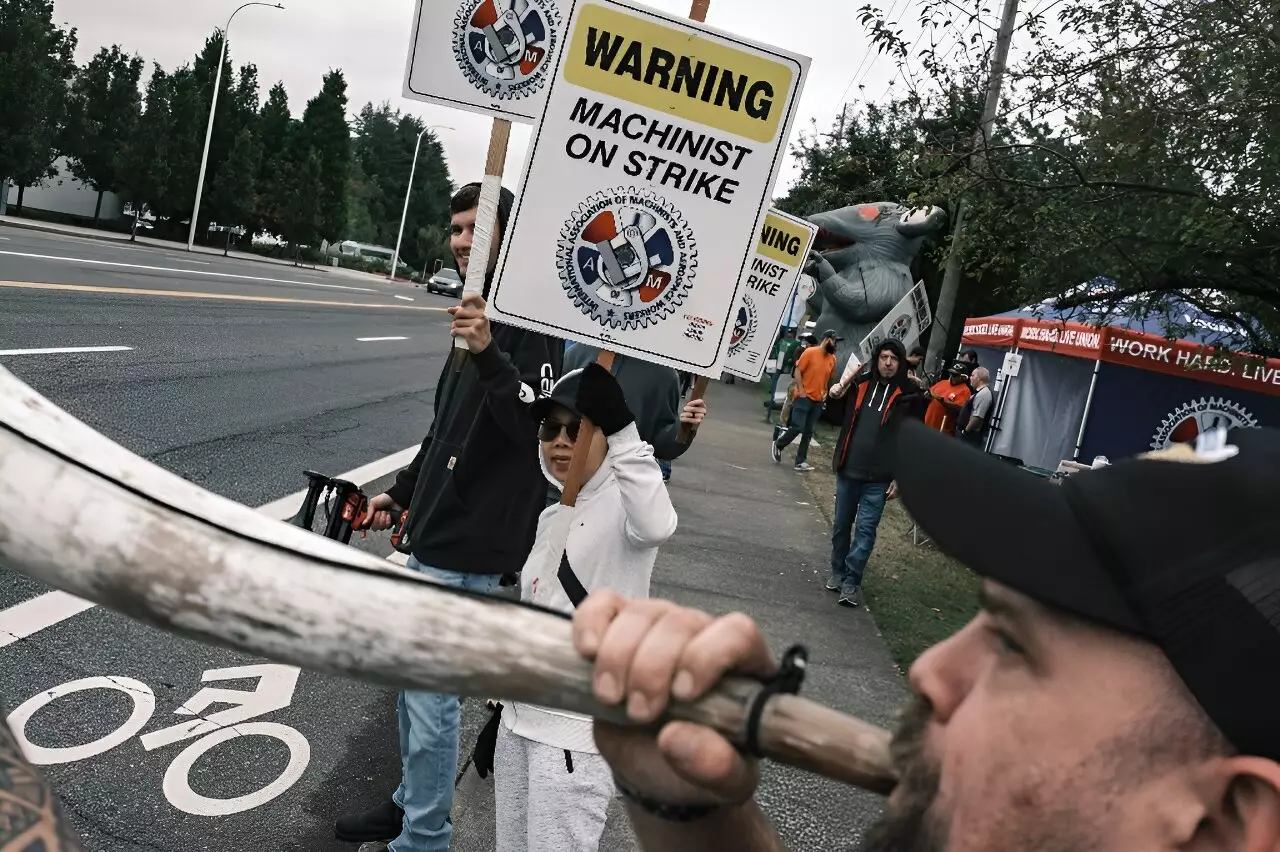Recent labor disputes have escalated to critical levels with the walkout of approximately 33,000 Boeing employees, predominantly from the Pacific Northwest, a region central to the company’s manufacturing capabilities. On September 13, these workers initiated their strike after decisively rejecting a contract proposal that failed to meet their expectations. This industrial action has significant implications, resulting in the near-total shutdown of assembly lines for Boeing’s pivotal 737 MAX and 777 aircraft. Such halts in production could have far-reaching consequences not just for Boeing’s output but for the wider aviation industry as delays ripple through supply chains.
The International Association of Machinists and Aerospace Workers (IAM) recently announced that negotiations with Boeing have reached an impasse, stating that talks “broke off” without a new agreement. This situation underscores a growing frustration among labor groups who feel that their voices are not being adequately heard in the negotiation process. As of now, the IAM has indicated there are no further discussions scheduled, yet the union remains receptive to reopening talks, with or without mediation. This level of openness is essential in labor negotiations, reflecting an ongoing willingness to resolve issues despite the setbacks.
In response to the strike and subsequent labor disruptions, Boeing has expressed its commitment to renewing relations with its workers, emphasizing the importance of negotiating in good faith. The company has made a significant overture by proposing a “best and final offer” that includes a noteworthy 30% wage increase and the reintroduction of an annual bonus for employees. However, the IAM dismissed this offer as insufficient to address core worker concerns. The union has highlighted that while wage increases are important, they are far from the only issue that needs resolution.
A major point of contention in the negotiations revolves around the company’s pension plan, specifically the IAM’s insistence that Boeing unfreeze its defined benefit retirement plan. Strike action often hinges on financial security for workers, particularly in their retirement years, and Boeing’s steadfastness on this issue has proven to be a roadblock in discussions. Moreover, the union asserts that additional improvements are needed regarding wage progression, more extensive paid time off, and other benefits. The company’s reluctance to engage on these matters points to a deeper struggle in labor relations where agreement seems a distant prospect.
As negotiations stand still, the immediate future for both Boeing and its employees remains uncertain. The strike not only affects the workers but poses significant challenges for Boeing’s operational capabilities as well. By failing to reach an amicable resolution, both parties risk prolonging this contentious situation, which could lead to further economic ramifications. The IAM’s willingness to continue discussions indicates a glimmer of hope, suggesting that with the right moves from both sides, a mutually beneficial agreement is still within reach if both parties are open to compromise and dialogue.


Leave a Reply